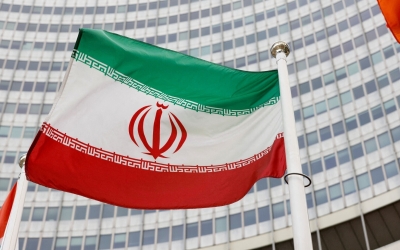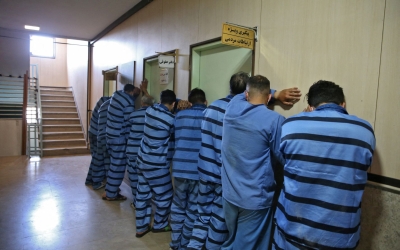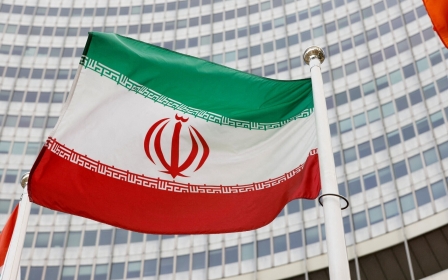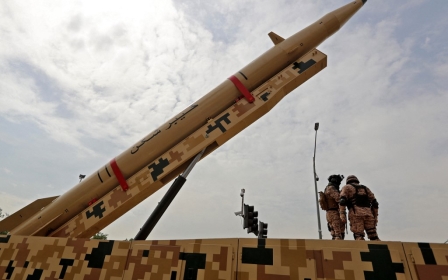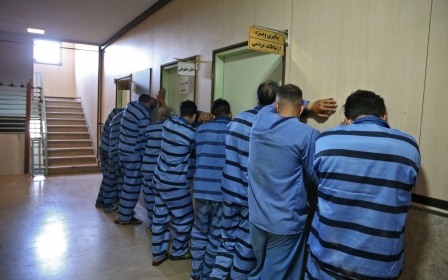Iranian press review: Champion boxing couple attacked by religious morality police
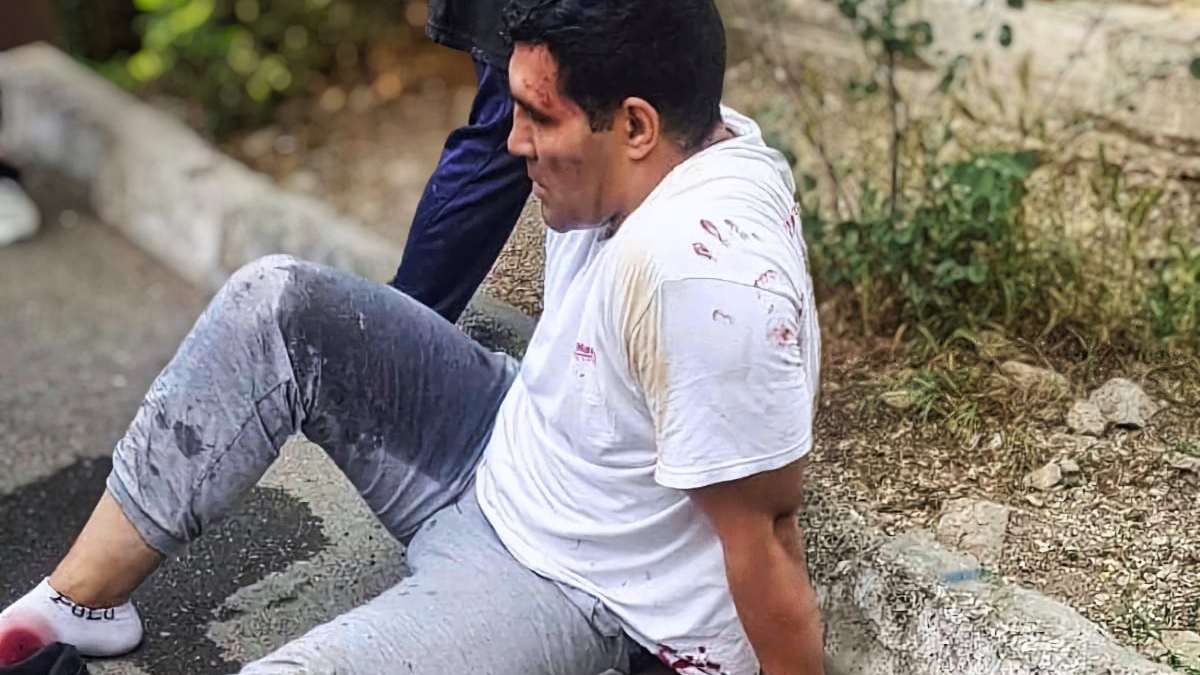
Boxing champions recount police attack
An interview with a national boxing champion, who was shot twice by Iran's religious morality police, has provoked anger among Iranians, with many sharing their experiences of being arrested by officers from the same force on Farsi social media
On Saturday, the Shargh daily published an interview with Reza Moradkhani and his wife Maria Arefi, both national boxing champions, in which they revealed that they and their 11-month daughter had also been pepper-sprayed during the incident.
'When I complained to the officers, one of them told me: shut up and close your mouth'
- Khatereh Vatankhah, journalist
The couple said the religious morality police had attacked them in April while they were in a public park, warning Arefi about her hijab, and shooting Moradkhani in the leg after he objected to their treatment.
The couple told the newspaper that they had decided to talk to the media after their lawsuit against the police officer who shot Moradkhani did not proceed.
Following the report, several Iranians wrote about incidents between themselves and the religious morality police.
Khatereh Vatankhah, an Iranian journalist, wrote on Twitter about how officers had arrested and separated her from her 13-year-old daughter.
"When I complained to the officers, one of them told me: shut up and close your mouth... I was not worried about myself but my daughter who was left alone and with no money on the streets," Vatankhah wrote.
Using a Farsi term for the religious morality police, Maysam Sharafi, an energy analyst, wrote on Twitter: "The hatred you cultivated with Gasht-e Ershad will return to you forever; only if you had a bit of logic..."
Hardliners push for nuclear treaty exit
Conservative and hardline Iranian politicians have urged authorities to withdraw from the nuclear Non-Proliferation Treaty (NPT) in response to a resolution censuring Iran submitted to the International Atomic Energy Agency (IAEA)
Last week, the Atomic Energy Organisation of Iran (AEOI) turned off several of the UN atomic watchdog's cameras that Tehran had voluntarily installed at its nuclear sites in anticipation of the censure vote.
"[While the] AEOI's response is appreciated, we should not forget such responses and actions are not sufficient," wrote the conservative Kayhan daily.
The newspaper, whose editor-in-chief is directly appointed by Iran's supreme leader, criticised the IAEA, saying it had been influenced by Israel in taking measures against Iran.
"It is worth noting that the IAEA director visited Tel Aviv and discussed Iran's nuclear programme with officials in Israel, a country with atomic weapons which is not an NPT member," said Kayhan.
"So, when our membership in international conventions and agreements does not bring us any good and increases the sanctions and threats against Iran, why should we remain in the NPT?"
Other pro-conservative outlets made the same demand, urging Iran's parliament to pass the necessary laws for withdrawal from the NPT.
"To protect national interests, it is expected from the parliament to weigh the possibility of NPT withdrawal, as it has been proved that the benefits of leaving the NPT are more than remaining a member," wrote Rahe Shalamche.
Scholarships worsening brain drain
A scheme which allows elite Iranian high school students to study abroad has made headlines after Iranians criticised authorities for allowing the programme, which they said was exacerbating Iran's brain drain.
Farsi outlets reported how Turkey's Yunus Emre Institute holds exams in Tehran to recognise and provide a full scholarship for Iranian students to continue their studies in high schools in Turkey.
The Iran Newspaper, an official government outlet, revealed that the same exams were held by the French, Italian and German embassies in Iran.
Following the 1979 revolution, the loss of talented citizens became a severe social issue in Iran, with a large number of university students, highly skilled workers and academics emigrating to foreign countries.
After details of the high school student programme were revealed, experts and teachers pointed out that most students studying abroad never return to Iran.
Iranian demographer Shahla Kazemipour told Khabar Online that only betweeen 10 and 15 percent of elite students who are studying abroad return to the country.
Economists warn of rising inflation
In a statement addressed to "the honourable people of Iran", 61 economists have warned that the establishment's current economic policies will lead to triple-digit inflation and a worsening of the country's financial crisis.
In their statement, published by pro-reformist outlets, the experts criticised President Ebrahim Raisi's policy of slashing subsidies for wheat and other essential goods, which government officials have dubbed as "economic surgery".
"We warn the authority that the country is in a very vulnerable situation," the statement read.
"In this miserable situation, insisting on removing subsidies is the straw that would break the camel's back and generate a confrontation between the system and people."
Referring to the government's budget for religious and propaganda programmes, the economists accused officials of spending "thousands of billions" of Iranian rials on unnecessary expenses "which have no impact on people's living conditions".
Iranian economists who signed the statement said that weak governance and corruption were the two main leading causes of the country's current economic and social crises.
"During the past two decades, widespread corruption, the sharp collapse of social capital, nepotism - particularly in foreign trade - and a severe decline in investment have led to a serious outflow of capital to other countries," the statement continued.
The economists suggested that the sole solution for Iran's economic crisis would be a both a shift in foreign policy and a change in the way the country is ruled.
Middle East Eye propose une couverture et une analyse indépendantes et incomparables du Moyen-Orient, de l’Afrique du Nord et d’autres régions du monde. Pour en savoir plus sur la reprise de ce contenu et les frais qui s’appliquent, veuillez remplir ce formulaire [en anglais]. Pour en savoir plus sur MEE, cliquez ici [en anglais].


